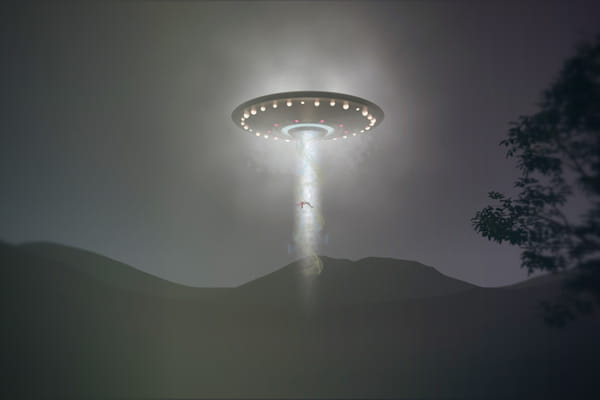Astronomer reveals why there have still been no alien encounters.
Man has never met an alien, that’s a fact. But how can we explain it? Michael Garrett, an astronomer and member of the Department of Physics and Astronomy at the University of Manchester, has looked into the matter. He highlights the phenomenon of the “Great Filter” according to which an event prevents intelligent life, in this case human life, from becoming interplanetary and runs to its own destruction if it keeps a single home. This is why man could rely on artificial intelligence (AI).
Michael Garrett highlights “the critical need to rapidly establish regulatory frameworks for the development of AI on Earth and the advancement of a multi-planetary society in order to mitigate these existential threats” in Science alert. Be careful, several specialists have already warned against AI. In Wired magazine, in 2007, the physicist and theorist Stephen Hawking already feared that “AI will completely replace humans. If people design computer viruses, someone will design an AI that will improve and replicate itself. It will be a new form of life that will surpass humans.” “Concerns about artificial superintelligence (ASI) are becoming a major issue. Combating this possibility in the coming years is a growing research goal for leaders in the field,” Garrett continues.
In practical terms, the risk posed by the ASI is that it will no longer need the biological life that created it. “Upon reaching a technological singularity, ASI systems will rapidly outstrip biological intelligence and evolve at a rate that will completely outstrip traditional surveillance mechanisms, leading to unforeseen and unintended consequences that are unlikely to be aligned with biological interests or ethics,” worries Michael Garrett. While the situation seems hopeless, Garrett doesn’t necessarily agree.

Indeed, his analysis is based on a universe where the ASI and humans occupy the same space. On the other hand, if we manage to achieve multiplanetary status, which has never been the case, the prospects could become very different. “For example, a multiplanetary biological species could benefit from independent experiments on different planets, thus diversifying its survival strategies and possibly avoiding the one-off failure that a planetary civilization faces,” he explains. This distributed model of existence increases the resilience of a biological civilization to AI-induced catastrophes by creating redundancy.
Multiplanetary status could do more than just survive the ASI. It could help us master it. Michael Garrett imagines situations in which we can experiment more thoroughly with AI while mastering it. Imagine an AI on an isolated asteroid or dwarf planet, carrying out our commands without access to the resources needed to escape its prison. “This creates isolated environments where the effects of advanced AI can be studied without immediate risk of global annihilation,” Garrett writes, again in Science alert.
